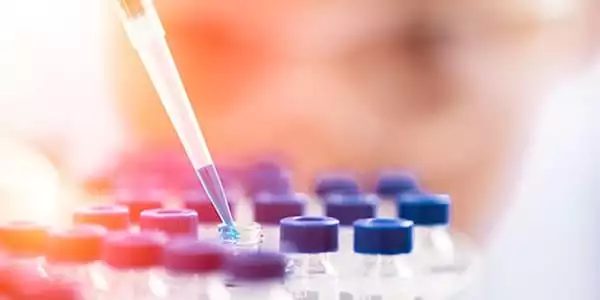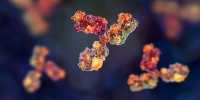According to recent research from Weill Cornell Medicine, a growth factor protein produced by rare immune cells in the colon can protect against the consequences of inflammatory bowel disease (IBD).
The researchers discovered that the growth factor, HB-EGF, is created in response to gut inflammation by a group of immune-regulating cells known as ILC3s in their study, which was published in Nature Immunology. These immune cells are found in numerous organs, including the intestines, but their numbers are known to be decreased in IBD patients’ inflamed intestines.
In mouse tests, the researchers demonstrated that this growth factor may substantially counteract the detrimental effects of TNF, a critical promoter of intestinal inflammation. ILC3s do this by protecting gut-lining cells when they would otherwise die, causing a break in the intestinal barrier.
“We uncovered a new biological route that is critical for preventing intestinal inflammation. This discovery could lead to a better understanding of IBD pathogenesis and the development of new treatment strategies for the disease” Dr. Gregory Sonnenberg, an associate professor of microbiology and immunology in medicine in the Division of Gastroenterology & Hepatology and a scientist at Weill Cornell Medicine’s Jill Roberts Institute for Research in Inflammatory Bowel Disease, was the study’s senior author.
We uncovered a new biological route that is critical for preventing intestinal inflammation. This discovery could lead to a better understanding of IBD pathogenesis and the development of new treatment strategies for the disease.
Dr. Gregory Sonnenberg
IBD, which includes ulcerative colitis and Crohn’s disease, is characterized by chronic intestinal inflammation and a variety of potential side effects, including arthritis and colon cancer. The ailment appears to be relatively widespread in the United States; according to a survey-based study conducted by researchers at the Centers for Disease Control and Prevention in 2015, more than 1% of the U.S. population, or more than three million people, have IBD. Current treatments benefit some people but not all.
In recent studies, Dr. Sonnenberg and his colleagues discovered that ILC3s play an important role in protecting the gut from harmful inflammation and are depleted in human patients with IBD or colon cancer. The current study aimed to acquire a better understanding of how ILC3s combat the inflammatory effects of IBD.
In the first series of tests, the researchers used high dosages of an inflammatory immune protein called TNF to mimic an IBD-like condition in mice. TNF is a primary generator of inflammation in IBD and a target of various IBD medications. In these investigations, they discovered that ILC3s strongly protect the gut linings of mice from TNF-induced inflammatory damage; mice lacking ILC3s incurred significantly more damage.

Previous research has revealed that ILC3s assist protect the gut by generating an immune peptide called IL-22, which enhances gut barrier function. The latest study’s animal tests, on the other hand, showed that ILC3s’ gut-protective action against TNF acts independently of IL-22.
The researchers subsequently zoomed in on the mechanism of ILC3s’ protective impact using a relatively advanced technique called single-cell RNA sequencing: the growth factor protein HB-EGF, which they demonstrated could specifically keep gut-lining cells alive in the presence of high TNF.
The researchers discovered that ILC3s are the primary generators of HB-EGF in the gut. They were able to identify the signaling cascade that happens downstream of TNF and leads ILC3 to activate HB-EGF synthesis – and they detected the same cascade in human ILC3s, showing that these discoveries are not limited to mice. The researchers also found that HB-EGF-producing ILC3s are diminished in areas of intestinal inflammation in IBD patients’ gut tissue.
The findings disclose a fundamental mechanism that the gut ordinarily employs to shield itself from potentially detrimental inflammation, and they suggest that the absence of ILC3s is at least one reason this strategy fails in IBD.
“Identifying the significance of this pathway is a good first step,” Dr. Sonnenberg said. “We’re now thinking about how we may alter this pathway to assist IBD patients.”
He emphasized that the loss of ILC3s in the IBD gut complicates the development of therapeutic solutions that rely on ILC3s. Furthermore, while the growth factor HB-EGF may be therapeutic on its own, even if ILC3s are depleted, HB-EGF has been related to the quicker growth of a number of malignancies.
“We are currently investigating the significance of this ILC3 and HB-EGF pathway in the development of chronic-inflammation-related colon cancer,” stated study first author Dr. Lei Zhou, a postdoctoral associate in the Sonnenberg group. “Before moving forward with altering this unique pathway as a treatment option, it will be critical to identify the specific cellular and molecular mechanisms by which this novel system coordinates intestinal health, inflammation, and malignancy.”














